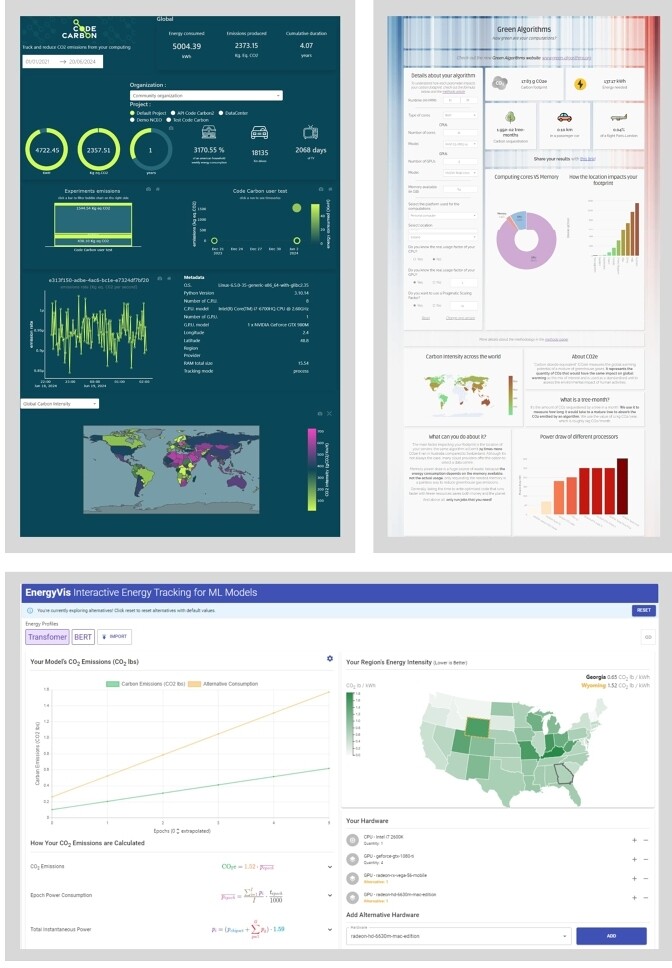Abril, 2025
Sinem Görücü, Luiz A. Morais, and Georgia Panagiotidou. 2025. A Critical Analysis of Machine Learning Eco-feedback Tools through the Lens of Sustainable HCI. In Proceedings of the 2025 CHI Conference on Human Factors in Computing Systems (CHI ’25). Association for Computing Machinery, New York, NY, USA, Article 885, 1–18. https://doi.org/10.1145/3706598.3713198

Abstract
In light of machine learning’s increasing computational needs, developers created energy and carbon-reporting tools to calculate and communicate their models’ environmental impact. These tools use modeling parameters as inputs and respond with expected or incurred energy requirements or carbon emissions. This work critically and systematically analyses them regarding their content, form, and design process. Besides their noble intentions, many of the shortcomings of early sustainable HCI eco-feedback tools are still being propagated in these tools. Moreover, their design and development have limited inclusion of potential stakeholders. We argue the need for a next generation of approaches to ML eco-feedback that (a) further support rematerialization, (b) use participatory approaches in their design and development to support collaborative team environments and go beyond individual persuasion, (c) consider complexities of ML models and processes, and more broadly, (d) re-center around sufficiency rather than only efficiency.
Authors
Sinem Görücü, King’s College London, London, United Kingdom
Luiz Augusto Morais, CIn, Universidade Federal de Pernambuco, Recife, Brazil
Georgia Panagiotidou, King’s College London, London, United Kingdom

Comentários desativados